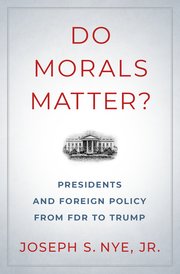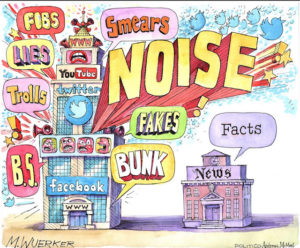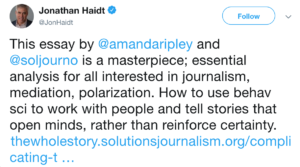Our anahata place.
January 30, 2020[From the children’s book, My Heart, by Corinna Luyken.]
“We’re all at the mercy of the universe, or God, or fate, or chance, or whatever. And there’s nothing to be done about it. That’s what has been sitting in the back of my brain since Sunday.”
-Shea Serrano
https://www.theringer.com/nba/2020/1/29/21113814/kobe-bryant-gianna-fatherhood-death
Corinna Luyken:
There are days it’s a fence
between me and the world,
days it’s a whisper
that can barely be heard.
There are days it is broken,
but broken can mend,
and a heart that is closed
can still open again.
“In times like these…”
Oxford University Press: ‘Americans constantly make moral judgments about presidents and foreign policy. Unfortunately, many of these assessments are poorly thought through. A president is either praised for the moral clarity of his statements or judged solely on the results of their actions.
In Do Morals Matter?, Joseph S. Nye, Jr., one of the world’s leading scholars of international relations, provides a concise yet penetrating analysis of the role of ethics in US foreign policy during the American era after 1945. Nye works through each presidency from FDR to Trump and scores their foreign policy on three ethical dimensions of their intentions, the means they used, and the consequences of their decisions. Alongside this, he also evaluates their leadership qualities, elaborating on which approaches work and which ones do not. Regardless of a president’s policy preference, Nye shows that each one was not fully constrained by the structure of the system and actually had choices. He further notes the important ethical consequences of non-actions, such as Truman’s willingness to accept stalemate in Korea rather than use nuclear weapons.
Since we so often apply moral reasoning to foreign policy, Nye suggests how to do it better. Most importantly, presidents need to factor in both the political context and the availability of resources when deciding how to implement an ethical policy-especially in a future international system that presents not only great power competition from China and Russia, but a host of transnational threats: the illegal drug trade, infectious diseases, terrorism, cybercrime, and climate change.’
Contents:
Chapter 1: American Foreign Policy Ethical Traditions
Chapter 2: What is a Moral Foreign Policy?
Chapter 3: The Founders
Chapter 4: The Vietnam Era
Chapter 5: Post Vietnam
Chapter 7: The Unipolar Moment
Chapter 8: The 21st Century Diffusion of Power
Chapter 9: American Foreign Policy and the Future Order
“In times like these, it is important to appreciate the role that moral reasoning should play in foreign policy. This is especially true in a democracy, where sustaining global involvement requires support from citizens. Joe Nye is one of our foremost and engaging analysts of American diplomacy, and in this book he provides a clear-eyed guide for reengaging our moral compass.” — Walter Isaacson, Distinguished Fellow and Former CEO, Aspen Institute, and Professor of History, Tulane University
Persevere Beyond the Noise
https://www.emersoncollective.com/media-journalism/
AXIOS:
Emerson Collective initial launch partner for new NowThis division
NowThis, the millennial social video media outlet that’s part of Group Nine Media, will announce today the launch of NowThis Impact, a new editorial division that covers social issues and is underwritten by non-profits.
Why it matters: Underwriting editorial content is becoming a bigger trend as more philanthropy and non-profit money floods into journalism.
Details: Emerson Collective, a social change organization founded by Laurene Powell Jobs, will serve as the company’s launch partner.
- NowThis is looking to announce additional underwriters in coming months.
- It will work with issue experts to form content partnerships around certain issues that contain specific calls to action.
- The new product aims to meet the content appetites of NowThis’ audience of progressive and civically-minded millennials.
Be smart: It’s not the first time Group Nine has dabbled in “call-to-action” media/journalism. Its animal franchise, The Dodo, has in the past directed its audience to adoption resources.
Disclosure: Emerson Collective is an investor in Axios.
A C T I V E L I S T E N I N G
How To Listen To People You Disagree With
JOURNALISM
Early last year, Amanda Ripley had a revelation: she wasn’t a great listener. “It was hugely disturbing, because it’s my job,” she says. Ripley is a journalist who writes for The Atlantic and The Washington Post. She was studying conflict as a way to understand political polarization. Through her research, she realized that one key to understanding – and sometimes even resolving – conflict is whether the parties involved feel heard or not.
Most people aren’t great listeners – including doctors and bosses and all kinds of people whose job requires listening. As Ripley sees it, journalists are conditioned to over-simplify polarizing topics or complex characters so that readers can more easily understand the reporting. But in doing so, journalists flatten incredibly complicated, nuanced topics and leave people more entrenched than ever. Ripley wrote about this revelation in a viral piece last year, Complicating the Narratives.
Now, Ripley, an Emerson Collective Senior Fellow, is working with the Solutions Journalism Network to train journalists on how to conduct better interviews, particularly about polarizing subjects. Ripley’s work is part of a larger movement to bridge political and cultural divides and revive healthy democractic debate in the U.S.
Ripley recently spoke with Patrick D’Arcy, Emerson Collective’s Director of Fellowships and Portfolio Communications, about the broader implications of her research on conflict and the essential, overlooked role of listening in a healthy democracy – and the Thanksgiving dinner table.
People will put up with a lot of difference if they feel heard. People will open up to different ideas and opinions.
https://www.emersoncollective.com/articles/2019/11/how-to-listen-to-people-you-disagree-with/
Essay: https://thewholestory.solutionsjournalism.org/22-questions-that-complicate-the-narrative-47f2649efa0e
“What do you want to understand? Conversation techniques, interview questions, and stellar story examples born from a conflict mediation training — for journalists”
https://youtu.be/FtCfGswZSjg
~
CONSIDER
Senator Cory Booker:
“This is a moral moment. The moral vandal that’s in the White House right now, he may win this day, but he will not win our nation. We are America. We’re going to find a way to regroup, heal, [and] be the moral nation that I know we are.”
“Never stop being a prisoner of hope.”
Marianne Williamson:
“The president’s defense team arguing for what is basically unlimited presidential power is chilling. Even if they get away with it – which they probably will – it’s important to remember that we the voters are the ultimate judge and jury. We’ll deliver our judgement in November.”
Philosopher/author Martha Nussbaum:
“To be a good human being is to have a kind of openness to the world, an ability to trust uncertain things beyond your own control.”
Beloved Companion
’…And as he said these things, I felt my soul ascend and saw the first great bough which bears the fruit of Love and Compassion, the foundation of all things.’ -Mary Magdalene





